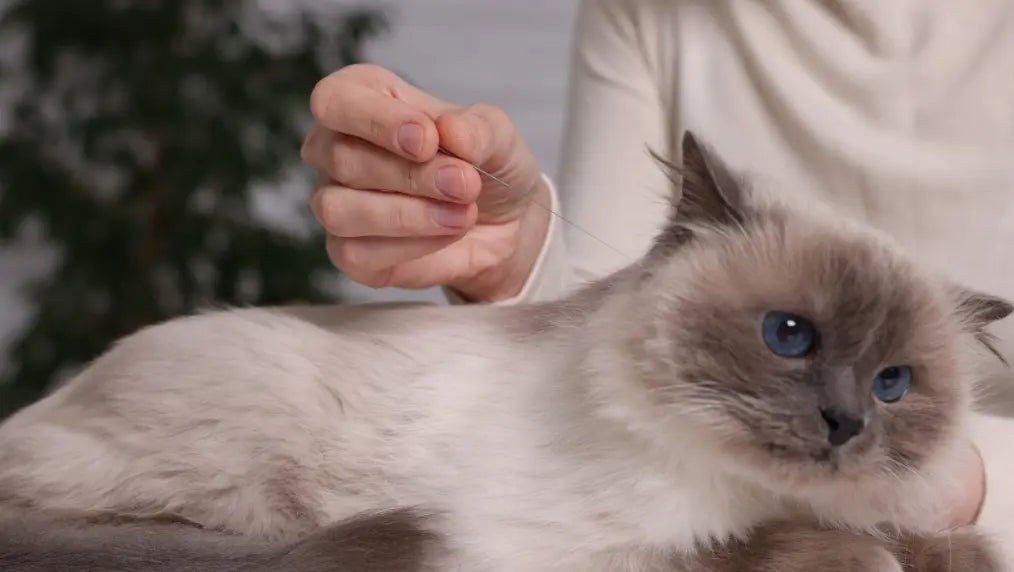Acupuncture treatment, an ancient healing practice originating from Traditional Chinese Medicine (TCM), has gained popularity as a holistic and effective approach to enhancing the well-being of our furry companions. This non-invasive therapy involves the insertion of thin needles into specific points on the body, aiming to stimulate energy flow and promote balance. In this comprehensive guide, we will explore the origins of acupuncture for pets, its benefits, the process, conditions it may address, and its integration into modern veterinary care.
The Roots of Acupuncture Treatments in Veterinary Medicine
Historical Perspective
Acupuncture has been utilized for thousands of years in human medicine, dating back to ancient China. It gradually found its way into veterinary care, and today, it is a recognized and respected alternative therapy for pets. The principles of acupuncture are rooted in the idea of balancing the body's energy, known as Qi, to promote optimal health.
Principles of Traditional Chinese Medicine
Understanding the fundamentals of Traditional Chinese Medicine (and Traditional Chinese Veterinary Medicine) is crucial to comprehend the philosophy behind pet acupuncture. Concepts such as Yin and Yang, the meridian system, and the flow of Qi explain the holistic approach to maintaining health and treating imbalances in animals.
Benefits of Pet Acupuncture

-
Pain Management: One of the primary benefits of pet acupuncture is its efficacy in managing pain and chronic pain. Whether dealing with chronic conditions like arthritis or acute injuries, acupuncture can provide relief by promoting the release of endorphins and reducing inflammation.
-
Enhanced Healing: Acupuncture stimulates blood circulation and triggers the release of growth factors, promoting faster healing of tissues. This is particularly beneficial post-surgery or during the recovery phase after an injury.
-
Stress and Anxiety Reduction: Pets, like humans, can experience stress and anxiety. Acupuncture helps regulate the nervous system, providing a sense of calmness and relaxation, which can be beneficial for pets dealing with behavioral issues or anxiety-related conditions.
The Acupuncture Process for Pets

Consultation and Examination
Before starting any acupuncture session or treatment, a thorough consultation and examination are conducted by a trained veterinary acupuncturist. This includes a review of the pet's medical history, a physical examination, and an assessment of the pet's overall health.
Acupuncture Points and Techniques
During a session, the veterinary acupuncturist identifies specific points along the meridians related to the pet's condition. Hair-thin, sterile acupuncture needles are gently inserted into these points, with the goal of restoring balance and promoting the body's natural healing mechanisms.
Session Duration and Frequency
The duration and frequency of acupuncture sessions vary based on the pet's condition. While some pets may experience improvement after just one session, others may require a series of treatments for optimal results. Regular follow-ups are often recommended to assess progress and make necessary adjustments.
Conditions Treated with Pet Acupuncture
-
Musculoskeletal Disorders: Acupuncture for dogs (and cats) is commonly employed to alleviate pain and improve mobility in pets suffering from arthritis, hip dysplasia, degenerative joint disease, or intervertebral disc disease.
-
Neurological Disorders: Pets with neurological conditions such as paralysis, seizures, or nerve injuries may benefit from acupuncture as a complementary therapy to conventional treatments.
-
Gastrointestinal Issues: Veterinary acupuncturists can aid in managing digestive disorders, nausea, and appetite irregularities in pets.
-
Respiratory Conditions: Pets with respiratory issues like asthma or chronic bronchitis may find relief through acupuncture, which aims to strengthen the respiratory system.
-
Behavioral Problems: Acupuncture is increasingly used to address behavioral issues in pets, including anxiety, aggression, and compulsive behaviors.
Integrating Acupuncture into Modern Veterinary Care
Many veterinarians now recognize the benefits of integrating acupuncture with conventional veterinary care. A collaborative approach ensures comprehensive and holistic health management for pets. Veterinarians who specialize in acupuncture undergo specific training and certification in veterinary acupuncture. Pet owners are encouraged to seek out qualified practitioners to ensure the safety and effectiveness of the treatment.
Ongoing research in the field of veterinary acupuncture continues to provide evidence supporting its efficacy toward quality of life. Studies exploring the physiological effects of acupuncture on animals contribute to the growing body of knowledge surrounding this alternative therapy.
How Much Does Cat or Dog Acupuncture Cost?

Pet acupuncture costs typically range from $25 to $300 per session. The price will depend on multiple factors, including:
-
The dog’s temperament
-
The condition being treated
-
The equipment used
-
The practitioner’s experience
-
The patient’s response
The average dog will need about eight acupuncture sessions, and each session can generally last anywhere from 15 minutes to more than an hour. Some pet insurance companies include alternative medicine treatments like acupuncture within their standard policy coverage or supplemental wellness plans. This allows you to offset costs by getting reimbursed for up to 100% of expenses paid out-of-pocket.
Conclusion
Pet acupuncture stands as a testament to the evolving landscape of veterinary care, embracing holistic approaches that prioritize the well-being of our beloved companions. It is considered a safe and effective therapy for cats or dogs suffering. As more pet owners and veterinarians recognize the benefits of acupuncture, this ancient healing art continues to weave its way into the fabric of modern pet healthcare, offering a natural and complementary option for enhancing the lives of our furry friends.


